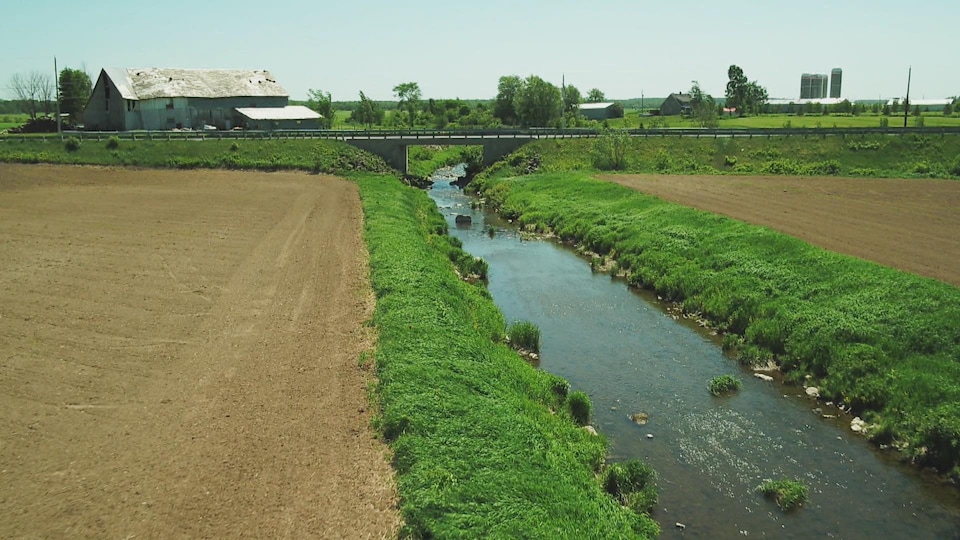A group of researchers in Quebec will try to highlight concrete examples of the benefits of reducing pesticides on the health of agricultural land to encourage producers to adopt sustainable and ecological practices.
For farmers, the environment is important. In an ideal world, they want to reduce their use of pesticides, but again, they need to see results, to make sure they don’t lose yield.supports Professor Valérie Langlois of the National Institute for Scientific Research (INRS), who will lead the work with her colleague Isabelle Lavoie.
Because if the consequences of pesticides are well documented, on the contrary, there are few demonstrations about the potential benefits for biodiversity when their use is reduced.
Seems obvious, but at the same time if nobody does it … That’s what farmers need, some kind of evidence that it worksMs. reasoning. Langlois, expert in ecotoxicogenomics.
Thanks to funding of nearly $ 1.3 million, his team can provide this possibility. Over the next four years, he will study the effects of the most common contaminant mixtures on farm crops and market horticulture areas.
Researchers observe the reaction of living organisms in ecosystems, such as springtails, by the gradual removal of pesticides.
What is the benefit? Which is returning, which is more?These are just some of the questions that Ms. Langlois’s answer.
The hypothesis is that this will increase biodiversity in organisms that reflect good soil qualityadded the researcher.
The strategy will also seek to establish a balance between reducing pesticides and maintaining an attractive harvest for producers.
The group of scientists, which also includes two experts from Agriculture and Agri-Food Canada, will begin field work this summer with farmers who are at various stages of a biological transition. They will do their experiments on plots of land.
Part of the research will also take place in the laboratory.
Water concentration
The research project entitled AgriSolWater will also focus on the concentration of pesticides in streams near agricultural land, with the aim of bringing about a change in the way these streams are measured.
Their initial hypothesis is that contaminants remain in biofilms, these microorganism mixtures that form in rocks and provide a sticky texture. These biofilms are part of the food chain of several aquatic species.
We think it is even more contaminated and going there for animals to feed will increase the pesticide load. Simply measuring the concentration of pesticides in water is not enough. We should look at concentrations in biofilms to have a better indication of contamination.explained by Ms. Langlois.
The researchers will sample microscopic algae and invertebrates. In small outdoor pools, they will re-create mini-food chains with, among other things, algae, snails and mussels.
Team members will evaluate whether pesticides accumulate in aquatic organisms more when they are digested through food, than simply through gill exposure.
The research project ofINRS is one of 11 funded under a program on sustainable agriculture, supported by the Fonds de recherche du Québec – Nature et technologies and the Ministry of Agriculture, Fisheries and Food.
Source: Radio-Canada

